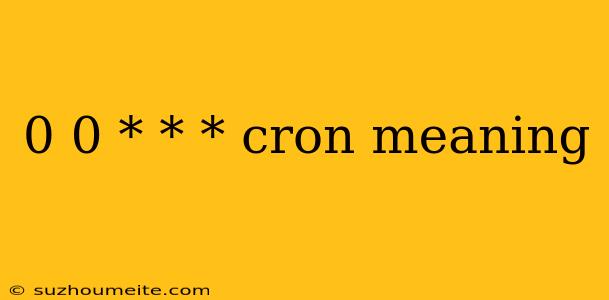CRON Expression: 0 0 * * * Meaning Explained
If you're familiar with Linux or Unix systems, you've probably come across CRON expressions. These expressions are used to schedule tasks or jobs to run at specific times or intervals. One of the most common CRON expressions is 0 0 * * *, but what does it mean?
Breaking Down the CRON Expression
A CRON expression consists of five fields, separated by spaces. Each field represents a different aspect of the schedule:
- Minute (0-59)
- Hour (0-23)
- Day of the Month (1-31)
- Month (1-12)
- Day of the Week (0-6)
The * symbol in each field is called a "wildcard" and means "any value is allowed".
The Meaning of 0 0 * * *
Now, let's break down the 0 0 * * * CRON expression:
- Minute: 0 - The task will run at the 0th minute of the hour (i.e., the start of the hour).
- Hour: 0 - The task will run at 0 o'clock (i.e., midnight).
- Day of the Month: * - The task will run every day of the month.
- Month: * - The task will run every month.
- Day of the Week: * - The task will run every day of the week.
In summary, 0 0 * * * means the task will run every day at midnight (00:00).
Practical Applications
This CRON expression is commonly used for tasks that need to run daily, such as:
- Backup scripts: Run a backup script every day at midnight to ensure your data is safe.
- Log rotation: Rotate logs daily to prevent them from growing too large.
- Report generation: Generate daily reports, such as sales reports or system usage reports.
Conclusion
In this article, we've demystified the 0 0 * * * CRON expression. By understanding the individual fields and the wildcard symbol, you can create your own CRON expressions to schedule tasks that meet your specific needs.
Remember, CRON expressions are powerful tools for automating tasks and can save you time and effort in the long run.
